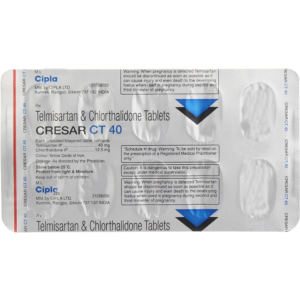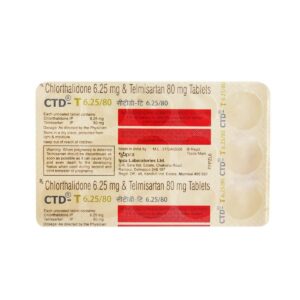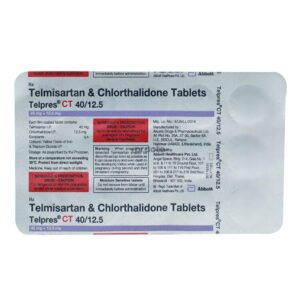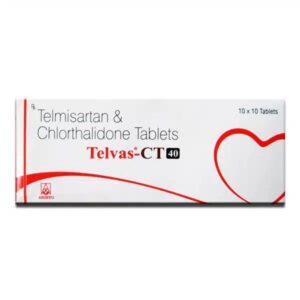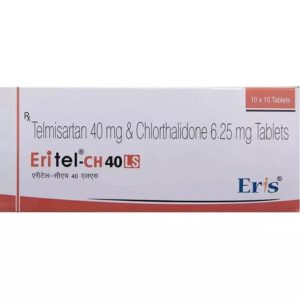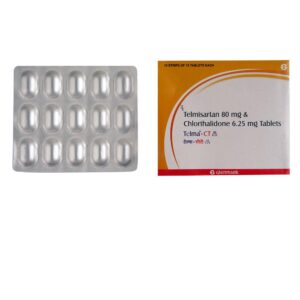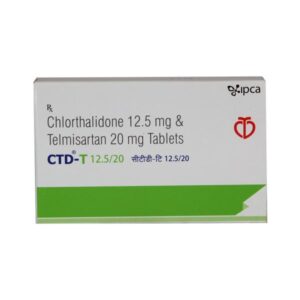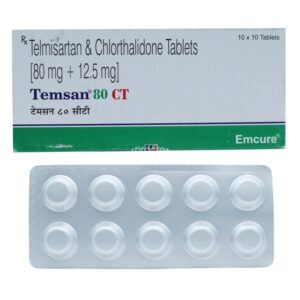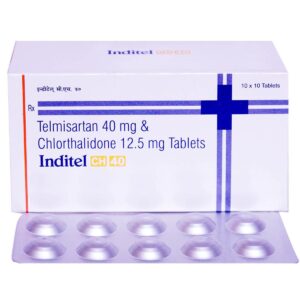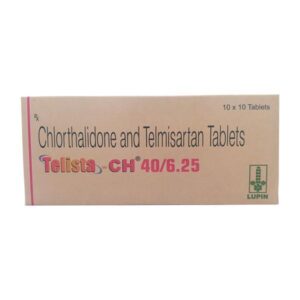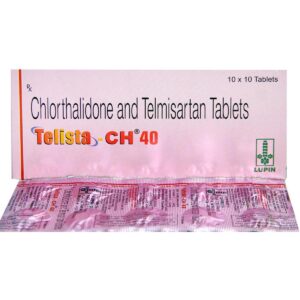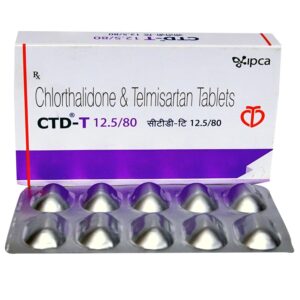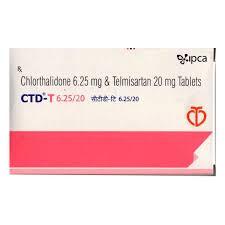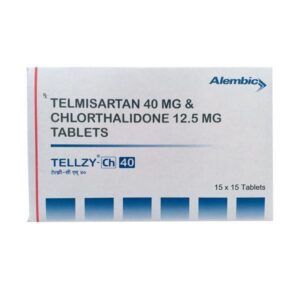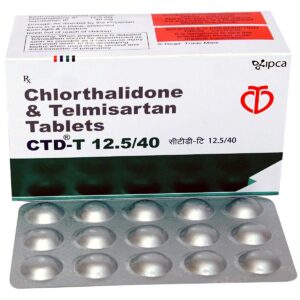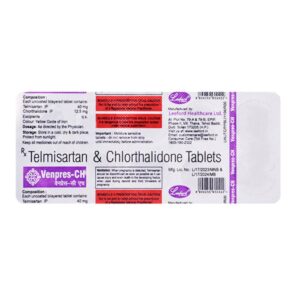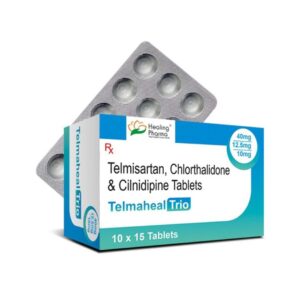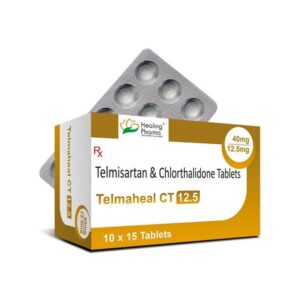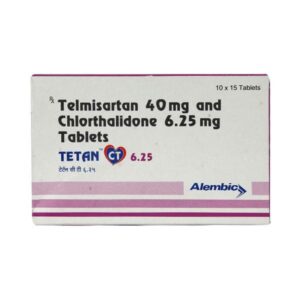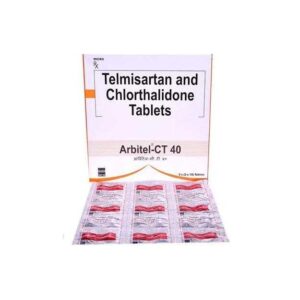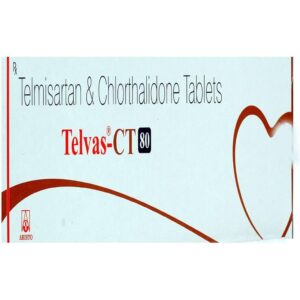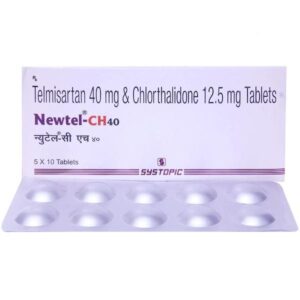CHLORTHALIDONE + TELMISARTAN
Chlorthalidone: Chlorthalidone is a medication classified as a thiazide-like diuretic. It is primarily used to treat high blood pressure (hypertension) and to reduce fluid retention (edema) in conditions such as congestive heart failure.
The exact mechanism of action of chlorthalidone is not fully understood, but it is believed to work by increasing the excretion of sodium and water through the kidneys, which leads to a decrease in blood volume and a subsequent reduction in blood pressure. The drug also has vasodilatory effects, meaning it relaxes and widens blood vessels, further contributing to the antihypertensive (blood pressure lowering) effect.
The usual starting dose of chlorthalidone for hypertension is 25 mg taken orally once daily. Depending on the patient’s response, the dose can be increased up to 50 mg per day, taken as a single dose or divided into two doses. For edema, the dosage may range from 25 mg to 100 mg daily.
Common side effects of chlorthalidone include dizziness, lightheadedness, low blood pressure, increased urination, electrolyte imbalances (such as low levels of potassium or sodium), muscle cramps, and gastrointestinal disturbances like nausea, vomiting, and diarrhea. It is important to note that thiazide-like diuretics may also increase blood sugar levels and cholesterol levels in some individuals.
More serious side effects, although uncommon, may include allergic reactions, severe skin reactions, blood disorders, pancreatitis, and liver problems. It is crucial to seek medical attention immediately if experiencing any severe or concerning side effects.
Chlorthalidone should not be used by individuals with a known allergy to it or other sulfonamide-derived drugs. It may also be contraindicated in patients with severe kidney disease or certain electrolyte imbalances. As always, it is essential to consult with a healthcare professional for personalized advice and to discuss the potential benefits and risks of using chlorthalidone.
Telmisartan: Telmisartan is a medication used primarily for the treatment of hypertension (high blood pressure). It belongs to a class of drugs known as angiotensin II receptor blockers (ARBs).
The main mechanism of action of Telmisartan is to block the action of angiotensin II, a hormone that causes blood vessels to narrow, resulting in increased blood pressure. By blocking the angiotensin II receptor, Telmisartan causes blood vessels to relax, leading to lower blood pressure and improved blood flow.
As for dosing, Telmisartan is typically taken once daily, with or without food. The recommended starting dose for most patients is 40 mg per day. However, the dose may be adjusted based on individual response and the condition being treated.
Common side effects of Telmisartan include dizziness, headache, sinusitis, back pain, fatigue, and upper respiratory tract infections. Less commonly, it may cause muscle pain, indigestion, diarrhea, and allergic reactions. Rare but serious side effects may include kidney problems, liver problems, and low blood pressure.
It’s important to note that Telmisartan should not be used during pregnancy as it can harm the developing fetus. It is also important to inform your doctor about any other medications you are taking, as certain drugs, such as diuretics or potassium supplements, may interact with Telmisartan. Always consult with a healthcare professional for personalized advice and guidance regarding the use of Telmisartan.

